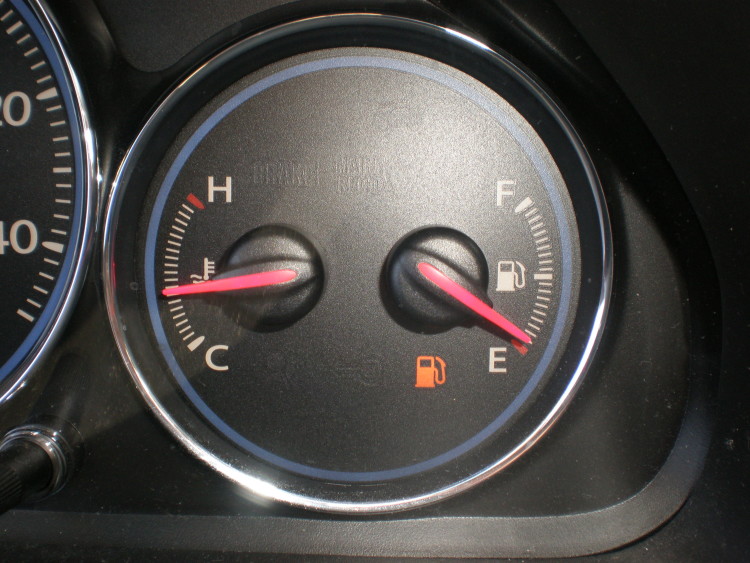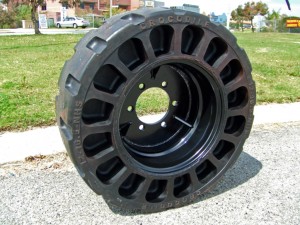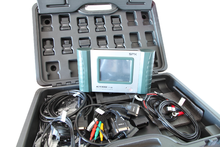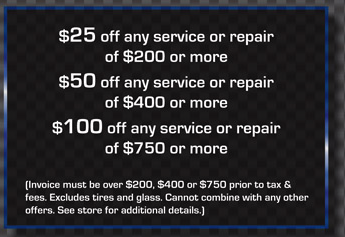What Causes my Car to Overheat?
 Most of the dials on a person’s dashboard are easy to understand and interpret. Everyone knows what makes your speedometer increase and your fuel gauge decrease, but what about your car’s temperature gauge? What causes the dial to creep up towards the big “H”?
Most of the dials on a person’s dashboard are easy to understand and interpret. Everyone knows what makes your speedometer increase and your fuel gauge decrease, but what about your car’s temperature gauge? What causes the dial to creep up towards the big “H”?
There are three main reasons why a car might overheat. They are:
- Loss of coolant
- Inability of the coolant system to get rid of excess heat
- Excess heat in the engine
We’ll examine common problems that cause all three of these issues.
Loss of coolant
Coolant helps regulate the heat in your car. If your coolant is empty, certain parts will begin to “run hot”. If your car’s internal systems begin to overheat, it can cause serious and expensive damage. Leaks in your water pump, radiator, hoses, gaskets or plugs can lead to the loss of engine coolant. Another simple reason why your car may be leaking coolant is because your radiator rap is loose, which allows coolant to spill out. These are usually the first places a mechanic will check to identify the problem with your heating system.
Inability of the coolant system to get rid of excess heat
If the coolant system is unable to flush out the heat produced by the engine, your car will begin to overheat. This usually occurs because there is a clog in the cooling system. Deposits in your cooling system can develop over time, so it’s important to make sure you get routine diagnostics tests. A mechanic will attempt to de-clog the system by doing what is called a “reverse flush”. If your system is extremely clogged, it may be wiser to have the system replaced.
Excess heat in the engine
A working engine typically coverts about one third of the energy derived from the combustion of fuel into work that powers the vehicle. That means about two thirds is converted into heat, which needs to be removed from the engine. Half of the heat in the engine exits the vehicle through the exhaust pipe, while the other half is removed by the coolant. If all the hoses and fluid levels are in working order and your engine is still overheating, you might want to check what type of coolant you are using. Generally speaking, a 50/50 coolant-to-water ratio is recommended. You should double check to make sure the coolant you use has the proper ratio as specified in your owner’s manual.
-
Exploring the Different Types of Car Tires
 Oct 30, 2013
Oct 30, 2013Engineers are constantly looking for new ways to improve upon current technology, and one of the most studied components of automotive engineering is the development of the optimal tire. While some are radically attempting to reinvent the wheel, others are simply trying to improve upon the current model. Below, we look at some of the […]
-
Why Pay for Car Diagnostics?
 May 14, 2013
May 14, 2013Vehicle diagnostic checkups are often ignored by car owners, but are very important to the long life of your car. What are Vehicle Diagnostics? Back in the day, it was up to the individual mechanic to determine what was wrong with your vehicle. Now Electronic Control Units (ECUs), which are present in all modern cars, […]
-
How do I know if a Mechanic is Ripping Me Off?
 Feb 19, 2014
Feb 19, 2014Unless you have a friend or family member who is well versed in automobiles, finding a trusty mechanic can be an intimidating process. We would love to believe that people in the service industry are inherently trustworthy, but unfortunately that isn’t always the case. Although you may never know for sure until you’ve had service […]




